Issues
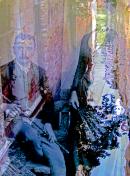
Members and affiliates of the International Poetry Studies Institute at the University of Canberra have, for some years, been visiting the United Kingdom, and collaborating with colleagues at universities across the country in symposia and other creative/research events.

When discussing metaphors of inhabitation and dwelling and their relationship to language, Heidegger’s enigmatic claim in his ‘Letter on Humanism’ (1946), comes to mind:
Language is the house of being. In its home human beings dwell. Those who think and those who create with words are the guardians of this home. (239)
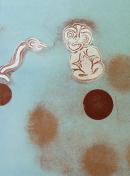
The contributions in this issue have been gathered together from various sources including a number of events addressing the themes of this issue. Primarily, these were the Turning Point: Creative Arts and Trauma symposium (University of Canberra, 7 June 2017), and the Narratives of Health and Wellbeing Research Conference (CQUniversity, Noosa campus, 26–27 October 2017).

Jeffrey Andrew Weinstock writes, ‘Our contemporary moment is a haunted one’ (2013: 61). Weinstock attributes the ‘spectral turn’ in contemporary cinema, television, literature and academic inquiry to a ‘general postmodern suspicion of meta-narratives accentuated by millennial anxiety’ (ibid.: 62, 63).

Material poetics is not a new concept. The last century has seen the boundaries between creative genres dissolve, allowing attentiveness to materiality — once the exclusive concern of sculpture and craft — to pervade and tantalise less tangible practices. The development of a digital realm has not destroyed materiality, as originally feared, but served to foreground it; and the collaboration that can take place between digital and analogue, verbal and visual, is what drives this issue.
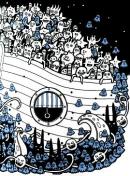
When we first announced the international symposium, Inside/Outside/Carnival, that took place at the University of Winchester, UK, in June 2017 (a collaboration between the International Poetry Studies Institute (IPSI) at the University of Canberra, and the University of Winchester, with invited guest speakers from the USA, Australia and the UK) we prefaced it with, ‘Into the cauldron of 21st century writing - Tipping a hat at Bakhtin the word Carnival is ambiguous.
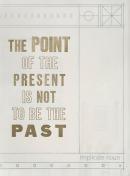
This issue of Axon is the second to relate directly to Poetry on the Move, the series of festivals run by the International Poetry Studies Institute based within the Centre for Creative and Cultural Research, Faculty of Arts and Design, University of Canberra. The theme of the festival in 2017 was Boundary Crossings, and it was offered – in a slightly expanded version, as a focus for poets and academics to interpret in their own fashion within this issue.
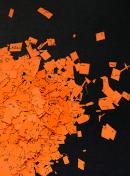
“[P]lay is the laboratory of the possible. To play fully and imaginatively is to step sideways into another reality, between the cracks of ordinary life. Although that ordinary world, so full of cumbersome routines and responsibilities, is still visible to us, its images, strangely, are robbed of their powers.” (Henricks 2006: 1).
The academic critique of the conditions of creative work has always been slightly disingenuous. In the name of a ‘workerist’ critique – one which highlights the poor returns to artists according to normative models of labour market analysis – the study of creative labour has de-emphasised the fact that the modern notion of ‘work’ is itself placed in question by artists. But the artistic critique of work, as Luc Boltanski an Eve Chiapello usefully describe it, has been central to the vocation of the artist since at least Industrial Modernity.
Poetry on the Move was initiated in 2015 as a three-year poetry project hosted by the International Poetry Studies Institute (IPSI) based within the Centre for Creative and Cultural Research (CCCR), Faculty of Arts and Design, University of Canberra (UC).